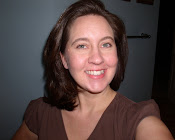- Are you a frequent reader?
- Have you written anything else?
- Are you an avid and daily learner?
- Do you have a writing support network?
- Have you published anything?
Part one addressed "Are you a frequent reader?" Today we'll address:
Have you written anything else?
Sorry, but letters to Grandma, e-mails, texts, and Facebook posts don't count. Have you written essays, articles, short stories - fiction or nonfiction, poems, or meditations. Even journal writing or letters to newspaper editors count as little jump starts into the writing world.
Many of these writing forms are high-attaining art forms all on their own. Poetry, short stories, and article writing can become lucrative in the gifted or well-learned writer's hands. So I don't mean to minimize them by suggesting an aspiring novelist start here, but if you've never written before, learning with a shorter form of writing is manageable. Start small and build.
When I first decided to enter the writing world seriously, it was because I wanted to write a novel. In fact, I already had thirty thousand words written on my first novel when I took my first step - joining this writers' group, Living Writers Collective. I wanted to get my story out there. I wanted people to tell me how brilliant it was, how elegantly written.
Through my interactions with my writers' group (we'll explore more on this in part four), I quickly realized how poorly written my novel was - there were some great writers here, and I was just a writer wanna be - not so brilliant after all. I had some serious work to do. I put that novel aside, and I started writing short stories. Lots and lots of short stories because I became addicted to them and because I was just so determined to get it right.
Some of the best stories I've read have been short stories. Great short stories often jab a good gut punch, are vivid and emotional, have active plot lines, and throw in some fun twists. They have to be powerful. Short stories have to accomplish in a tenth or less of space what an entire novel takes around four hundred pages to do.
Short stories are challenging, but the prep work is less demanding and you can usually knock out an entire short-story rough draft in a day or two or a week at the most. So they're a great place to start. Meet the challenge by mastering the short story techniques. And best of all, short stories aren't wasted - you can submit them to short story markets or contests and make a few bucks. Or save them all and try to get them published as a collection.
Practice poetry writing to build your vocabulary and enhance your ability to make words flow. Novel writing is more than just putting a story on paper - the words have to flow.
Writing articles builds your writing form and structure and is a great way to start writing if you have special skills that you feel others can learn from - gardening, parenting, mechanics, true motivational stories, crafts. And freelance article writing, which we will explore more in part five, is a great way to earn some cash on the side while you work on that novel. Many freelancers actually make enough money to quit their day job.
And once you've started writing, find avenues for critique. You need this on a local level and on a professional level to truly learn great writing. Living Writers Collective has an open critique session once each month. Within our writers' group we have a critique buddy service where we buddy up with other writers outside of that one monthly meeting and utilize each other for a more thorough editing process. I also host professional critique webinars outside of LWC so LWC writers who wish to dig deeper can see how professional writers and editors provide critiques. Make sure your critique group or partner isn't afraid to be honest. We like to hear the good stuff, but you want the focus to be on areas you need to improve.
Are you still not convinced you can't just start writing a novel with no prior experience? Have you ever gone snow skiing? If the answer is yes, pretend for a moment that it's no. Would you pop on the rental skis, buy a lift ticket, ride to the top of the mountain, and ski down the double black diamond slope (this is the serious, real friggin' scary, big-daddy slope) on your first ever attempt at skiing? Of course you wouldn't, unless death was your intention.
Starting with a novel when you've never written anything else is where potentially great writers' dreams go to die. And it's a sad day when that happens, so start small and build, and make your fellow writers proud, 'kay?
So, have you written anything else? If not, get busy - you have a lot of writing to do to prepare for that next great novel.
Join me in a couple of days for part three of this five-part series. In part three, I will explore the third question on the bullet list above: Are you an avid and daily learner?
By the way, if you happen to be an exception - a successful author (meaning you've quit your day job) who never wrote anything before your first novel, my readers and I would love to hear from you.
Post by: LWC Director, Karen Aldridge. Visit her personal blog at My Writing Loft.
















No comments:
Post a Comment